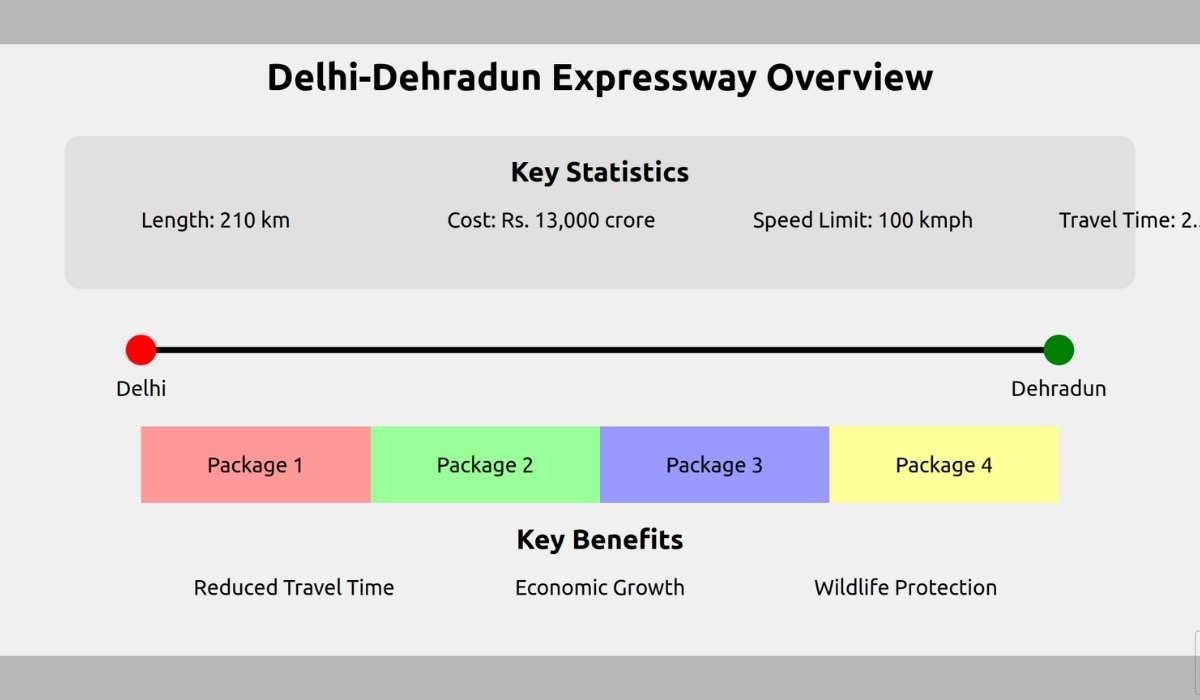In a remarkable display of demand and enthusiasm, an Indian real estate giant recently announced the successful pre-sale of its latest luxury residential project in Gurugram, National Capital Region. An astounding 1113 luxury flats, valued at a staggering 7200 crore rupees, were sold out within a mere 72 hours. This incredible feat underscores the tremendous growth and potential of India’s real estate market, which has become a focal point for investors and homebuyers alik
The Significance of Homeownership in India:
For Indians, owning a home is not just a financial investment; it holds deep emotional and social significance. It marks a milestone in one’s life, providing a sense of security, stability, and pride. The sentimental value attached to homeownership is a driving force behind the surge in demand for residential properties across the country. However, the question arises: is sentiment alone fueling India’s real estate boom, or are there other factors at play?
The Evolution of India’s Real Estate Market:
To understand the current state of India’s real estate sector, it is essential to trace its journey since the country’s independence. In the early years, the focus was on public housing projects, aimed at providing accessible and affordable housing to the masses. The land reforms of the 1950s and 1960s further reshaped the market, redistributing land and setting the stage for future growth.
The 1980s marked a significant shift with the emergence of private housing, which gained momentum with the liberalization of the Indian economy in the 1990s. Large-scale projects, including IT parks, shopping malls, and high-end residential developments, began to transform the skylines of major cities.
For more insights on the evolution of India’s real estate market, visit our blog at https://realestateblog.co.in.
The Current State of India’s Real Estate Market:
Fast forward to 2024, and India’s real estate market has become one of the fastest-growing in the world. The evidence is unmistakable in the metropolitan cities, where skyscrapers and construction cranes dominate the landscape. The constant hum of construction activity is a testament to the sector’s rapid expansion.
Unlock Your Dream Home Today!
Get personalized real estate insights delivered straight to your inbox.
In 2023, India’s real estate market was valued at approximately $265 billion, and it is projected to reach a staggering $1 trillion by 2030. Even more impressive, by 2052, the market is expected to soar to $2.08 trillion, representing a remarkable 12-fold increase from 2023 to 2047. This growth will have far-reaching implications, with real estate potentially contributing more than 15% of India’s GDP and employing millions of people across various industries.
The Surge in Residential Sales:
The residential segment has been a key driver of India’s real estate boom. In 2022, homes worth 3.27 lakh crore rupees were sold, which increased to 4.5 lakh crores in the following year, marking an impressive 38% year-on-year growth. The demand for housing is particularly strong in the country’s seven top residential markets: Mumbai, Delhi, NCR, Bengaluru, Hyderabad, Chennai, Kolkata, and Pune.
These cities witnessed a remarkable 31% increase in sales, with over 4,76,000 units sold in a single year. The surge in demand can be attributed to several factors, including India’s stable economic growth, rising middle class, and government incentives such as tax reductions and affordable housing schemes.
The Rise of Luxury and Premium Properties:
While affordable housing remains a priority, there is a growing appetite for luxury and premium properties among Indian buyers. Luxury real estate, typically priced over 1.5 crore rupees (or 2.5 crores in Mumbai), offers a range of amenities, including prime locations, state-of-the-art fitness centers, infinity pools, rooftop lounges, and concierge services.
In the first six months of 2023, the sale of luxury homes skyrocketed by 130%, from 3,000 units in 2022 to 6,900 units. The ultra-luxury segment, comprising properties priced above 40 crore rupees, witnessed an even more impressive 200% growth, with nearly 600 such homes sold in India’s top seven cities.
For more updates on the luxury and premium property market, visit our website at https://realestateblog.co.in.
The Affluent Demographic and Foreign Investment:
The rise in luxury real estate sales can be attributed to India’s growing affluent demographic. By 2027, the number of millionaires in the country is expected to increase by 69%, and the ultra-high net worth individuals (those with a net worth of 30 million dollars or more) are projected to reach 19,000 within the next three years. This affluent segment seeks luxurious lifestyles, with real estate being a top priority.
Foreign investors have also taken note of India’s thriving real estate market. In the first half of 2023, more than 4 billion dollars flowed into India, with half of it directed towards real estate. Investors are increasingly turning to India as an alternative to China, where the property market is facing challenges such as mounting debt and company closures.
India’s stable economy, favorable demographics, and supportive government policies make it an attractive destination for foreign investment in real estate.
Challenges and the Way Forward:
Despite the impressive growth, India’s real estate sector faces several challenges. The rising cost of land has made India the 14th priciest residential real estate market globally, limiting affordable housing options. Bureaucratic processes and legal disputes can also hinder the smooth functioning of the market.
Moreover, many buyers rely on loans to finance their purchases, which can be a complex process, especially when faced with uncertainties regarding possession and high interest rates.
To address these challenges, the government and industry stakeholders must work together to streamline processes, reduce red tape, and provide more affordable housing solutions. Resolving legal disputes and ensuring timely possession of properties will boost buyer confidence and further fuel the growth of the real estate sector.
Conclusion:
India’s real estate market is a testament to the country’s remarkable journey of growth and opportunity. The sector’s boom reflects the aspirations and dreams of millions of Indians who view homeownership as a symbol of success and security. With a projected value of $2.08 trillion by 2052, the real estate market is poised to play a pivotal role in shaping India’s economic landscape.
As the market continues to evolve, it is crucial to address the challenges head-on and create an enabling environment for both buyers and investors. By fostering transparency, reducing bureaucratic hurdles, and promoting affordable housing, India can unlock the full potential of its real estate sector, ensuring that the dream of owning a home becomes a reality for many more Indians in the years to come.
For more insights, analysis, and updates on India’s real estate market, visit our website at https://realestateblog.co.in. Stay informed and make smart investment decisions as India’s real estate story unfolds, one brick at a time.
An Indian real estate giant recently sold out 1113 luxury flats in Gurugram within 72 hours, valued at 7200 crore rupees, showcasing the sector's tremendous growth and demand.
Homeownership in India represents not only a financial investment but also a deep emotional and social milestone, providing security, stability, and pride.
Initially focused on public housing, the market evolved through land reforms and the emergence of private housing in the 1980s, gaining momentum with economic liberalization in the 1990s.
As of 2023, India's real estate market is valued at approximately $265 billion, with projections to reach $1 trillion by 2030 and $2.08 trillion by 2052.
The residential sales increased significantly due to stable economic growth, a rising middle class, government incentives, and a strong demand for housing in major cities.
Luxury home sales surged by 130% in the first half of 2023, with ultra-luxury properties priced above 40 crore rupees witnessing a 200% growth.
India's growing affluent demographic, with an expected 69% increase in millionaires by 2027, is driving demand for luxury real estate.
In the first half of 2023, over $4 billion in foreign investment flowed into India, with half directed towards real estate, making India an attractive alternative to other markets.
Challenges include rising land costs, bureaucratic processes, legal disputes, and complexities in financing home purchases, which can hinder market growth.
The government and industry must work together to streamline processes, reduce red tape, promote affordable housing, and ensure timely possession of properties to boost buyer confidence.
DISCLAIMER
The information provided on this website is for general informational purposes only. While we strive to keep the content up-to-date and accurate, we make no representations or warranties of any kind, express or implied, about the completeness, accuracy, reliability, suitability, or availability of the information, products, services, or related graphics contained on this website.
In no event will we be liable for any loss or damage including without limitation, indirect or consequential loss or damage, or any loss or damage whatsoever arising from loss of data or profits arising out of, or in connection with, the use of this website.
Real Estate Investment Risks
Real estate investments involve significant risks and market volatility. Property values, rental rates, and market conditions can fluctuate. Past performance is not indicative of future results.
Before Making Real Estate Decisions
Before making any real estate decision, we strongly advise you to:
- Conduct thorough due diligence
- Consult with qualified legal, financial, and real estate professionals
- Carefully review all relevant documents and contracts
- Consider your personal financial situation and investment goals
This website does not provide legal, financial, or investment advice. All content is for informational purposes only and should not be construed as professional advice or recommendations.
By using this website, you acknowledge and agree to these terms. We reserve the right to modify this disclaimer at any time without notice.







